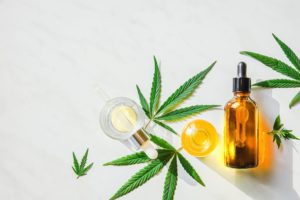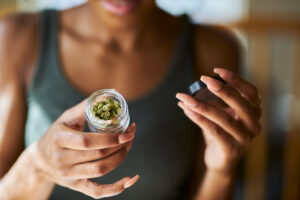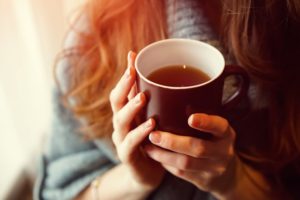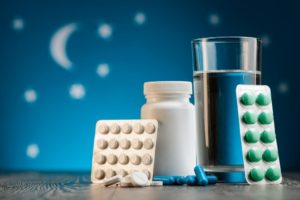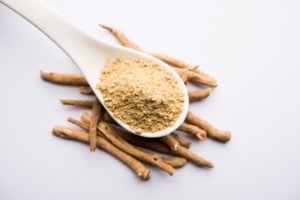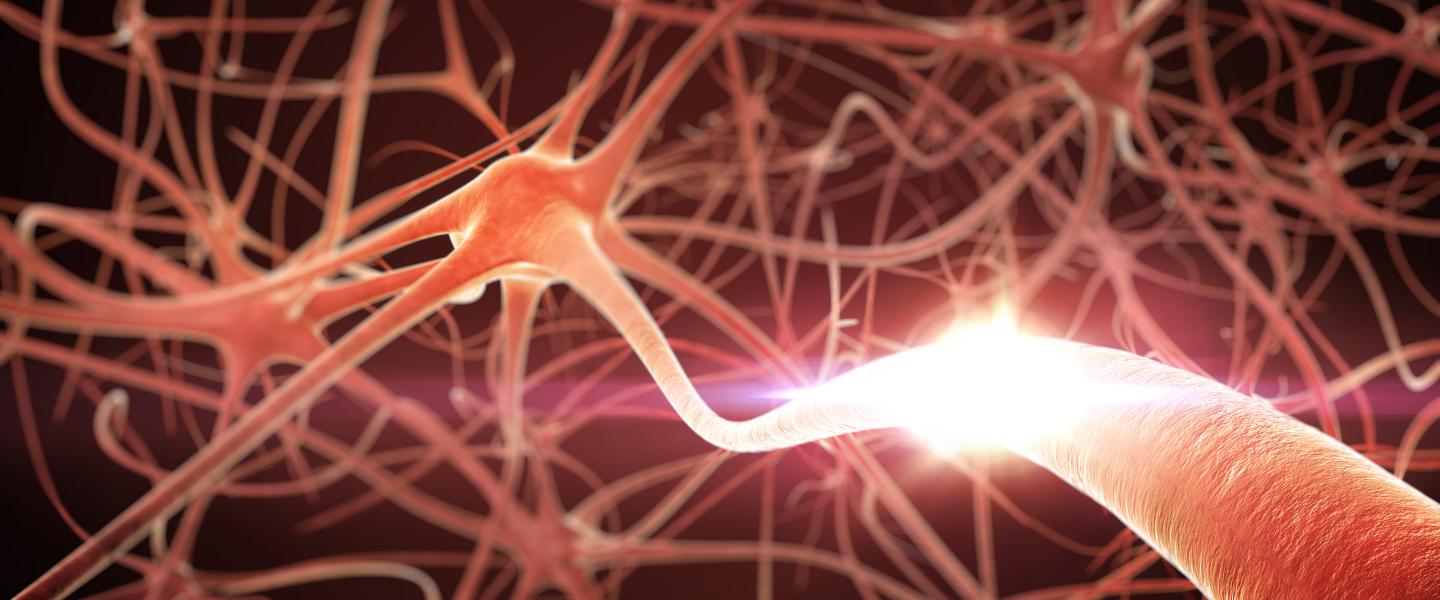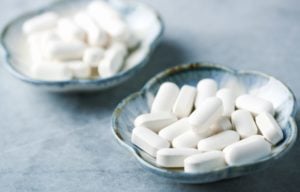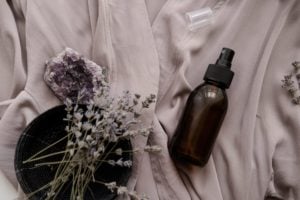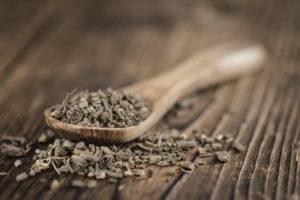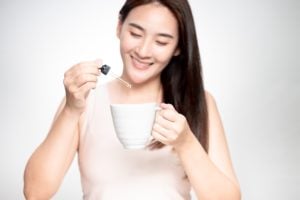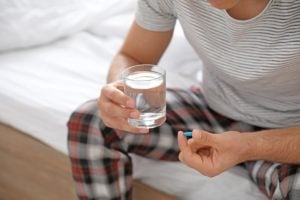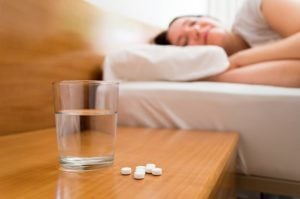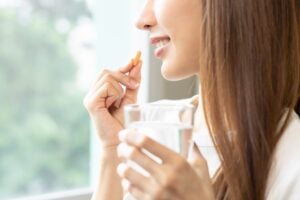The Best 7 Teas for Sleep
Herbal teas have long been used for relaxation and sleep, and there is scientific evidence to support herbal teas as a holistic way to prevent insomnia and improve sleep quality. Herbal teas can be a great option both day and night, especially if you’re trying to kick a caffeine habit before bed.
Herbal teas can be made from any edible herb or plant, but there are seven specific herbs that have been shown to improve sleep and promote relaxation. If you want to improve your sleep, look for these herbal teas next time you’re at the grocery store.
Valerian Root
Valerian root has a long history of being used as a sleep and stress aid. It is used to treat issues that impact sleep, such as insomnia, nervousness, headaches, and heart palpitations. Research demonstrates that a valerian root extract can improve sleep without the side effects of traditional sleep aids.
Valerian root is effective as a sleep aid due to the two naturally occurring sedatives within it called valepotriates and sesquiterpenes. In one study, nearly 90% of people reported improvements in sleep after drinking valerian tea. In another study, people fell asleep faster after drinking a valerian extract and their sleep quality improved .
Valerian root is reported to have an odor and earthy taste that some find unpleasant. Adding a dash of honey or maple syrup to your tea may help improve the taste.
Chamomile
Flowers of the chamomile plant have been used for many years to treat a variety of issues, including poor sleep. Chamomile contains multiple active chemical compounds, including one called apigenin that has a mild tranquilizing effect once it binds to benzodiazepine receptors in the brain.
While research is limited, chamomile has been demonstrated to improve sleep quality . A study of postpartum women found that participants who drank chamomile tea reported a reduction in sleep barriers and depressive symptoms. In another study of older adults, the group who received chamomile reported better quality sleep than the group who did not.
Lavender
More commonly used as aromatherapy, lavender is a purple flowering herb that has been used since the Roman empire. Not many people know that they can actually drink lavender as a tea, which can be added to a relaxing nighttime routine.
As with most herbal supplements, research on the efficacy of lavender as a sleep aid is limited. Lavender oil taken as an oral supplement has been shown to improve quality and duration of sleep. There is emerging evidence that lavender oil taken orally helps reduce nighttime wakings and improve mood.
However, there is some evidence to suggest that lavender aromatherapy may only have a short-term impact on sleep quality. The same might be true of drinking lavender tea. In one study, those drinking lavender tea reportedly felt less fatigued than the control group. However, after four weeks there were no significant changes, reinforcing the evidence that lavender is a short-term intervention for sleep problems.
Lemon Balm
Lemon balm, also known as Melissa officinalis, is a member of the mint family and smells slightly sweet and citrusy. The most common forms of lemon balm are tea and essential oil. Historically, lemon balm has been used as an antiviral and antibacterial medicine to treat infections and viruses. It also shows potential in helping restless sleepers at night.
Drinking a cup of lemon balm tea at night may reduce symptoms associated with insomnia. Lemon balm might also help reduce anxiety and depression . In a study comparing lemon balm to a traditional antidepressant, the participants who took 500 milligrams of lemon balm reported improved quality of life scores compared to those that did not take it.
A cup of lemon balm tea a night may be a good option for you if you’re struggling with restlessness and anxiety before bed. Adding it to your evening routine as a way to help you reduce stress before bedtime may help you get more shut eye.
Passionflower
Like chamomile, passionflower contains certain flavonoids that bind to the same receptors in the brain as benzodiazepines and may help reduce symptoms of anxiety. There is evidence that drinking a single cup of passionflower tea can help you sleep better.
Additionally, researchers found that when combined with other sleep enhancing herbs such as valerian, passionflower is just as effective in providing short term insomnia relief as traditional sleeping medications. It should be noted that this study used capsules, which are able to hold a more concentrated amount of the herb than would be found in a cup of tea.
Banana Tea
Banana tea is made by steeping banana fruit, peel, or both fruit and peel in boiling water. After a few minutes, strain the liquid for a mildly sweet banana tea. Drinking a warm, banana tea before bed can help signal to the body that it is time for sleep.
Experts believe that banana tea can provide the same sleep benefits as raw bananas. However, more research is needed to determine the effect of high temperatures on those sleep-promoting nutrients.
Magnolia Bark
Magnolia bark (Houpu) is a traditional Chinese herb that has been used to aid sleep for thousands of years. Its primary compound, honokiol, has been shown to reduce the time it takes to fall asleep by binding to GABA receptors in the brain, which help prompt sleep. Some studies report that wakefulness during the night might be increased if you’re taking magnolia bark but the time it takes to fall back asleep is less.
While you can drink magnolia bark as a tea, it’s also available as a supplement. Since the tea is made from the bark of the magnolia tree, it may have an unpleasant taste to some. If you dislike the taste, capsulated magnolia bark might be a better option for you.
References
15 Sources
-
Morin, C. M., Koetter, U., Bastien, C., Ware, J. C., & Wooten, V. (2005). Valerian-hops combination and diphenhydramine for treating insomnia: A randomized placebo-controlled clinical trial. Sleep, 28(11), 1465–1471.
https://pubmed.ncbi.nlm.nih.gov/16335333/ -
Leathwood, P. D., Chauffard, F., Heck, E., & Munoz-Box, R. (1982). Aqueous extract of valerian root (Valeriana officinalis L.) improves sleep quality in man. Pharmacology, Biochemistry, and Behavior, 17(1), 65–71.
https://pubmed.ncbi.nlm.nih.gov/7122669/ -
Hieu, T. H., Dibas, M., Surya Dila, K. A., Sherif, N. A., Hashmi, M. U., Mahmoud, M., Trang, N., Abdullah, L., Nghia, T., Y, M. N., Hirayama, K., & Huy, N. T. (2019). Therapeutic efficacy and safety of chamomile for state anxiety, generalized anxiety disorder, insomnia, and sleep quality: A systematic review and meta-analysis of randomized trials and quasi-randomized trials. Phytotherapy Research, 33(6), 1604–1615.
https://pubmed.ncbi.nlm.nih.gov/31006899/ -
Chang, S. M., & Chen, C. H. (2016). Effects of an intervention with drinking chamomile tea on sleep quality and depression in sleep disturbed postnatal women: A randomized controlled trial. Journal of Advanced Nursing, 72(2), 306–315
https://pubmed.ncbi.nlm.nih.gov/26483209/ -
Adib-Hajbaghery, M., & Mousavi, S. N. (2017). The effects of chamomile extract on sleep quality among elderly people: A clinical trial. Complementary Therapies in Medicine, 35, 109–114
https://pubmed.ncbi.nlm.nih.gov/29154054/ -
Kasper, S., Gastpar, M., Müller, W. E., Volz, H. P., Möller, H. J., Dienel, A., & Schläfke, S. (2010). Silexan, an orally administered Lavandula oil preparation, is effective in the treatment of ‘subsyndromal’ anxiety disorder: A randomized, double-blind, placebo controlled trial. International Clinical Psychopharmacology, 25(5), 277–287.
https://pubmed.ncbi.nlm.nih.gov/20512042/ -
Chen, S. L., & Chen, C. H. (2015). Effects of lavender tea on fatigue, depression, and maternal-infant attachment in sleep-disturbed postnatal women. Worldviews on Evidence-Based Nursing, 12(6), 370–379.
https://pubmed.ncbi.nlm.nih.gov/26523950/ -
Miraj, S., Rafieian-Kopaei, & Kiani, S. (2017). Melissa officinalis L: A review study with an antioxidant prospective. Journal of Evidence-Based Complementary & Alternative medicine, 22(3), 385–394.
https://pubmed.ncbi.nlm.nih.gov/27620926/ -
Ranjbar, M., Firoozabadi, A., Salehi, A., Ghorbanifar, Z., Zarshenas, M. M., Sadeghniiat-Haghighi, K., & Rezaeizadeh, H. (2018). Effects of herbal combination (Melissa officinalis L. and Nepeta menthoides Boiss. & Buhse) on insomnia severity, anxiety and depression in insomniacs: Randomized placebo controlled trial. Integrative Medicine Research, 7(4), 328–332.
https://pubmed.ncbi.nlm.nih.gov/30591886/ -
Shirazi, M., Jalalian, M. N., Abed, M., & Ghaemi, M. (2021). The Effectiveness of Melissa Officinalis L. versus Citalopram on quality of life of menopausal women with sleep disorder: A randomized double-blind clinical trial. Revista Brasileira de Ginecologia e Obstetricia: Revista da Federacao Brasileira das Sociedades de Ginecologia e Obstetricia, 43(2), 126–130.
https://pubmed.ncbi.nlm.nih.gov/33465795/ -
Ngan, A., & Conduit, R. (2011). A double-blind, placebo-controlled investigation of the effects of Passiflora incarnata (passionflower) herbal tea on subjective sleep quality. Phytotherapy Research, 25(8), 1153–1159.
https://pubmed.ncbi.nlm.nih.gov/21294203/ -
Maroo, N., Hazra, A., & Das, T. (2013). Efficacy and safety of a polyherbal sedative-hypnotic formulation NSF-3 in primary insomnia in comparison to zolpidem: A randomized controlled trial. Indian Journal of Pharmacology, 45(1), 34–39.
https://pubmed.ncbi.nlm.nih.gov/23543804/ -
Hikal, W. M., Said-Al Ahl, H. A. H., Bratovcic, A., Tkachenko, K. G., Sharifi-Rad, J., Kačániová, M., Elhourri, M., & Atanassova, M. (2022). Banana peels: A waste treasure for human being. Evidence-Based Complementary and Alternative Medicine, 2022, 7616452.
https://pubmed.ncbi.nlm.nih.gov/35600962/ -
Qu, W. M., Yue, X. F., Sun, Y., Fan, K., Chen, C. R., Hou, Y. P., Urade, Y., & Huang, Z. L. (2012). Honokiol promotes non-rapid eye movement sleep via the benzodiazepine site of the GABA(A) receptor in mice. British journal of pharmacology, 167(3), 587–598.
https://pubmed.ncbi.nlm.nih.gov/22537192/ -
Chen, C. R., Zhou, X. Z., Luo, Y. J., Huang, Z. L., Urade, Y., & Qu, W. M. (2012). Magnolol, a major bioactive constituent of the bark of Magnolia officinalis, induces sleep via the benzodiazepine site of GABA(A) receptor in mice. Neuropharmacology, 63(6), 1191–1199.
https://pubmed.ncbi.nlm.nih.gov/22771461/



